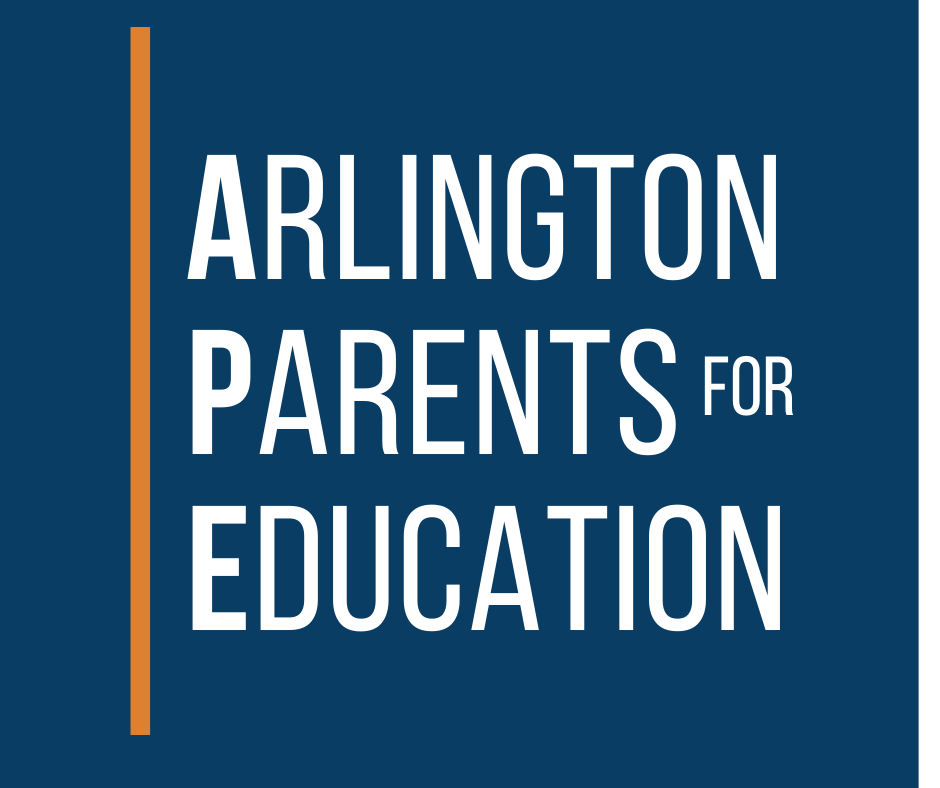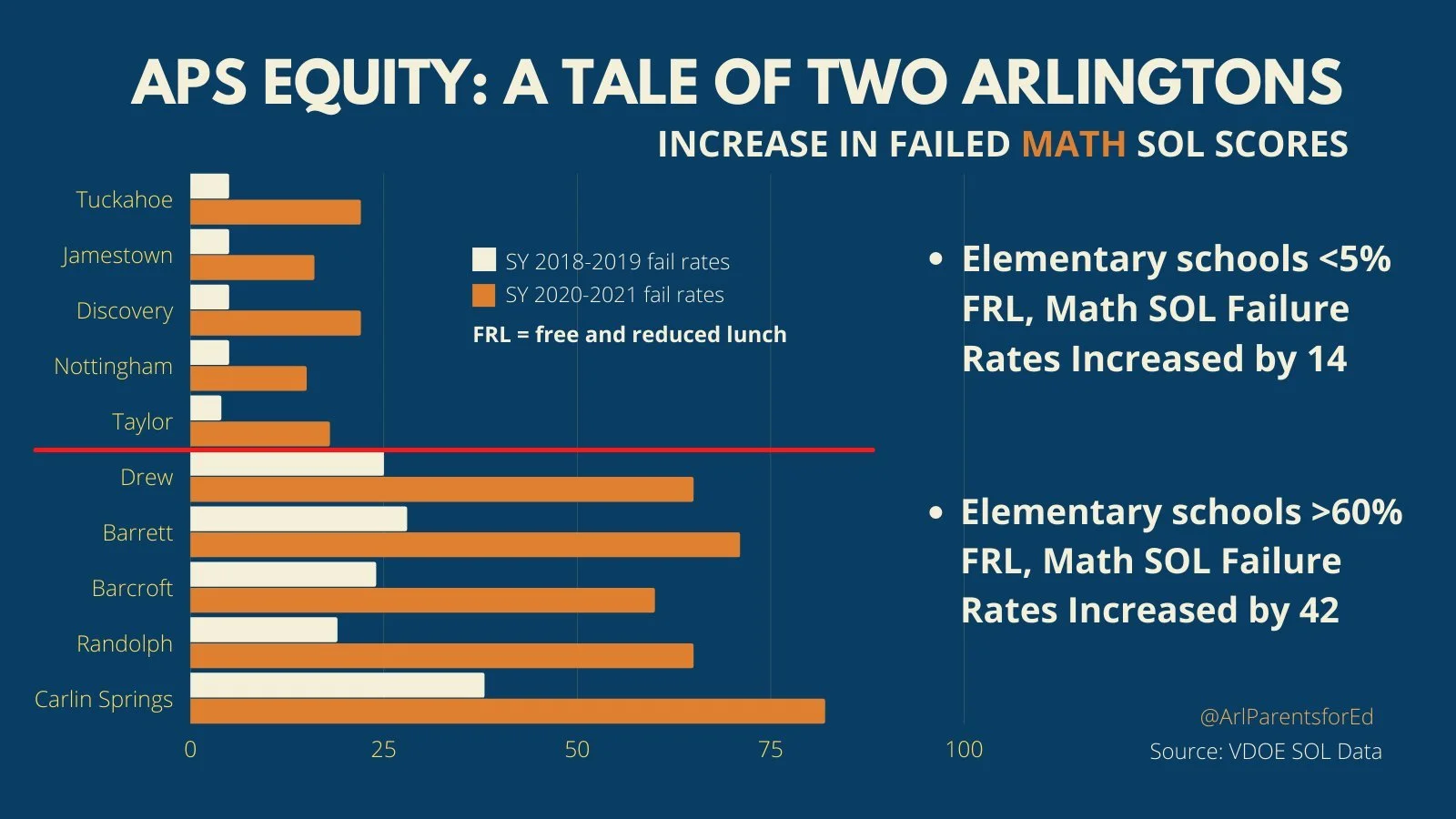Report // March 2022
APS Should Immediately Focus More Resources On Learning Loss, Especially Through More Instructional Time
Key Takeaways
Assessment Data and SOL Scores Show Students Are Behind: Student performance was raising red flags over a year ago, from “alarming” declines in elementary students meeting literacy benchmarks to falling grades for middle and high schoolers. At the beginning of the 2021-22 school year, APS revealed stark drops in SOL performance and math assessments show many students are behind.
APS’ Plans to Address Learning Loss Are Not Enough: APS has been slow to respond to learning loss, and its business-as-usual approach threatens to once again leave Arlington students behind their peers at neighboring districts. APS this year tackled learning loss principally through “accelerated learning” and additional use of instructional software - neither of which is sufficient.
Other districts provide a model for APS to follow: Our neighbors are allocating millions to interventions such as high-dosage tutoring and extended school year/expanded learning time. APS has recognized that addressing learning loss requires substantial additional investment, but the budget does not reflect that it will commit the funding.
More accountability is necessary: The APS Student Progress Dashboard is a significant step in the direction of accountability and will serve as an important resource to track how APS students recover from pandemic learning losses. This data and data obtained via FOIA request reinforces the urgent need for increased investment in recovery services. A comprehensive and evidence-based plan to address learning loss should be devised and made public. This will invite widespread and needed attention to the problem, foster community engagement and involvement to address the problem, and encourage community partnerships, including partnership with the County for coordination and additional funding beyond what is needed in normal times.

